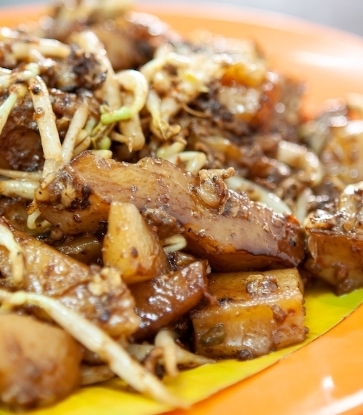Every day at 4 p.m., the entire team at Two-MICHELIN-Starred Dewakan stops what they’re doing to gather around “table nine.” It’s the restaurant’s most exclusive table, one no diner can book; instead, securing a seat at this table is contingent on only one thing: working here.
Front-of-house staff bring two foldable tables together to form a long, banquet-style setup beside the test kitchen, as cooks carry hotel pans and large stock pots of food, setting them down beside plates, bowls and two plastic containers of mismatched silverware. One by one, cooks, dishwashers, front-of-house and even administrative staff converge on the table, settling into a chorus of chatter and occasional laughter, all while Boney M’s “Daddy Cool” plays in the back.
Today’s staff meal is asam laksa, rice noodles in a mackerel-based broth flavored with asam or tamarind, which lends the dish its characteristic sourness. A specialty of Penang, it is commonly topped with mint, torch ginger, pineapple and petis udang, a type of shrimp paste cooked with molasses.
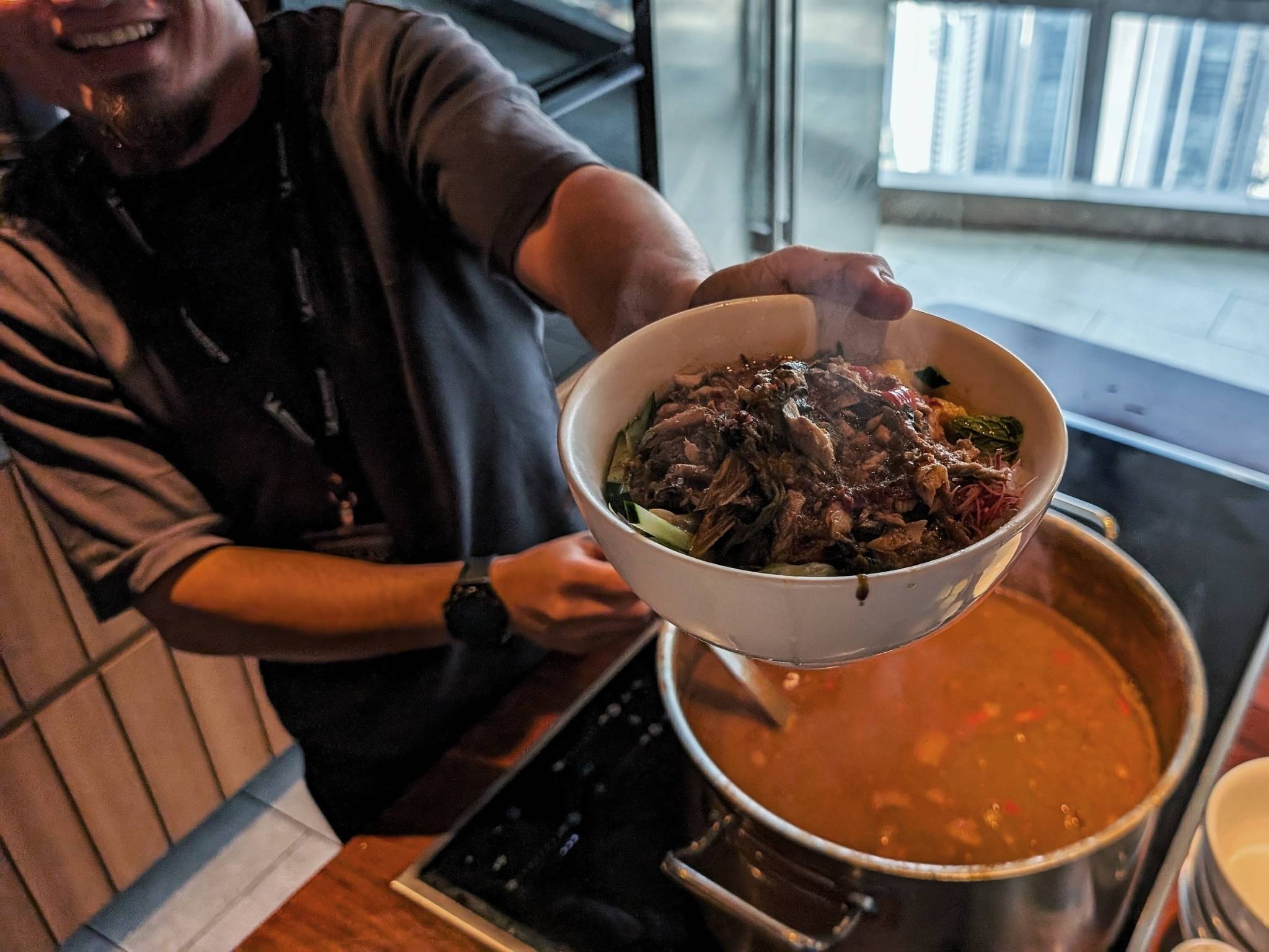
For chef de cuisine Wayne Wong, this sort of eating is a far cry from the staff meals he started out with. Recalling his time in Toulouse, France, the 32-year-old describes the staff meals then as “very, very sad” and “just something to get through the day.”
“Sometimes, we just opened cans. There would be a fresh salad, some capers, a vinaigrette, then a can of beans goes in, and maybe a stir-fry or pasta, things like that. It was mostly quick and simple because there wasn’t a focus on staff meals."
At Dewakan, the staff meal is treated like part of the work itself, approached with the same level of intention and care that reflects the restaurant’s broader philosophy. About a year ago, the team refined the way staff meals are organized, evolving from a rotational arrangement to a structure where one fixed person oversees the planning, organizing and cooking.
Wong, who has been at Dewakan for nine years, believes the change was necessary. “I felt it wasn’t as effective or as intentional as it could’ve been. A lot of times, the responsibility would fall on someone who might already have a lot on their plate that month, or didn’t want that kind of responsibility,” he explains. “When someone forces you to do something, it doesn’t feel or taste good. When someone wants to do it, it comes from within.”
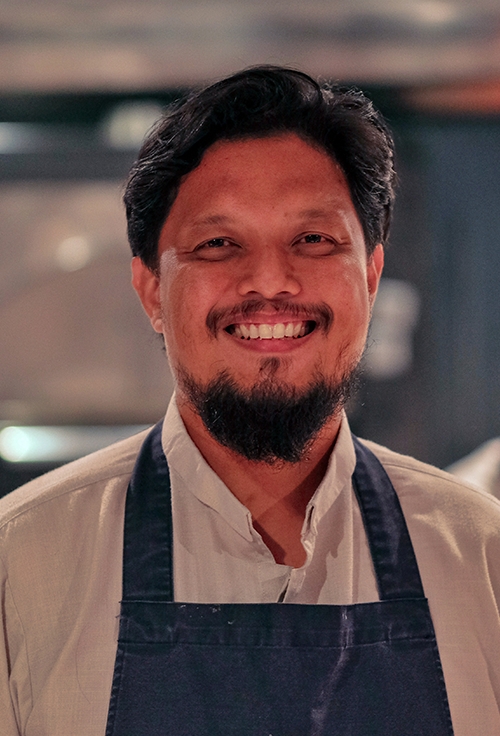
The turn-taking nature of the previous system had its gaps. Mishaps cropped up, Wong says, from rice not being ready by mealtime to it sometimes not being cooked at all.
This left chef-patron Darren Teoh (pictured on the right) “annoyed to no end,” as he finds it “paradoxical” to feed people well if the team doesn’t feed themselves well. “I don’t flip out often, but I used to stage a theatrical sort of flipping out that became legendary enough for them to always cook rice properly, and now they make sure anyone who has been tasked with it does so.”
The refinement has had its effect. Wong says the energy in the kitchen has shifted noticeably since the role was taken up by someone who wanted the responsibility. “Staff meal has been fantastic since then.” At the heart of feeding the Dewakan family is demi-chef Shafiq Normadi, who is responsible for planning, coordinating and supporting the cooking of every staff meal. The 27-year-old was among a few who put their names forward but ultimately earned the role with a combination of “spot on, super delicious and memorable” staff meals and a willingness to go the extra mile, which impressed Wong.
“He made this fried chicken, and the technique caught my eye, so I went over and asked him to teach me. He had this trick with the flour to make the chicken batter crunch up,” Wong recalls. “He had done his homework, learned it and tried it for the staff meal. You don’t come across many people with this kind of motivation and initiative to do a little bit more for this, and I think they should be rewarded by putting them where they can perform, where they’ll shine.”
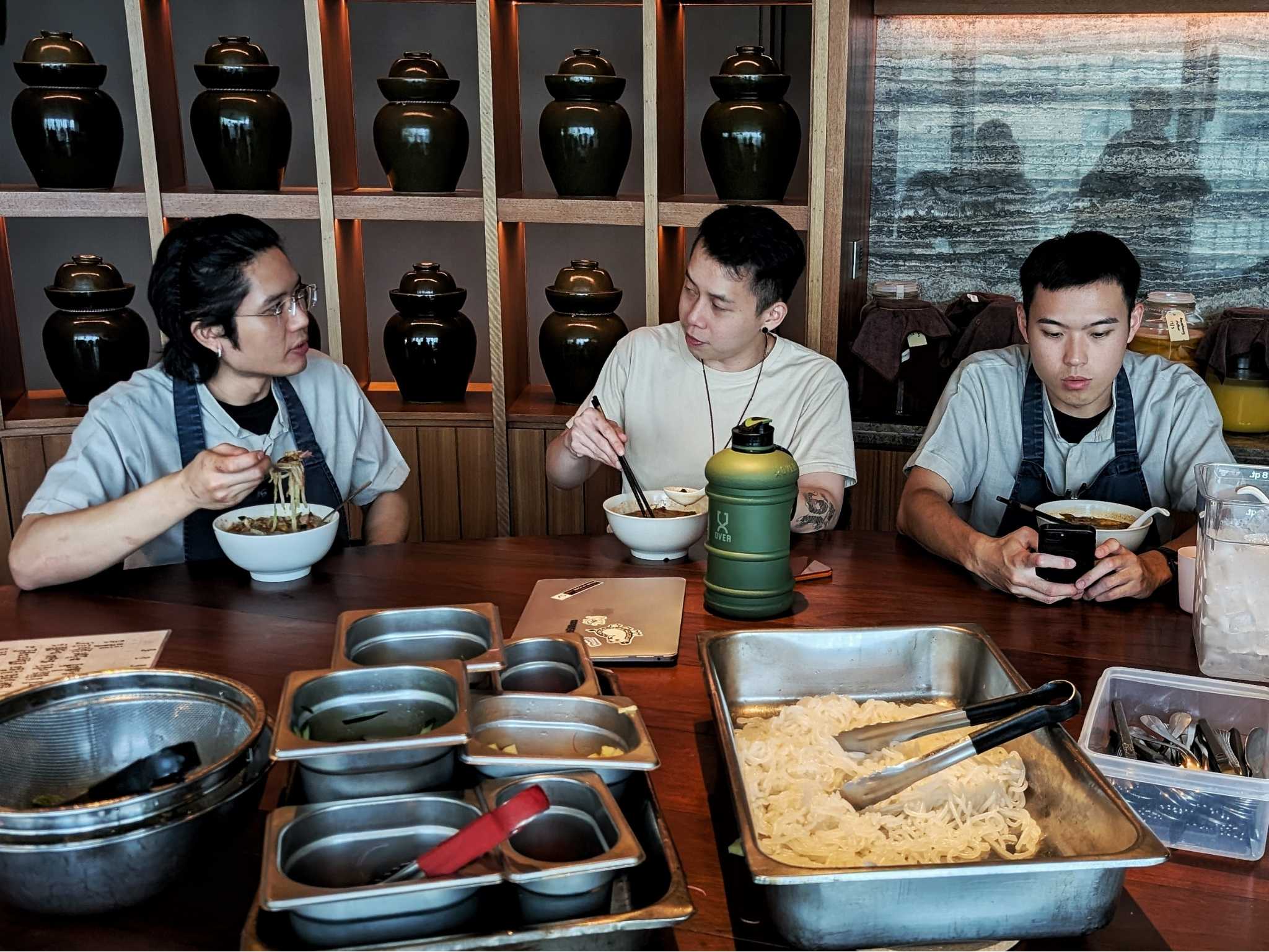
Every Friday, Normadi gathers the entire team to plan the staff meals for the following week. During these briefings, the theme of each day is decided, whether Thai, Malay or Japanese, along with the delegation of tasks, usually divided into carbohydrates, proteins, sides and sometimes dessert. Previous meals have included Japanese beef stew, omurice (a soft Japanese omelet served over ketchup-fried rice) with iced cabbage, and tom kha kai (Thai coconut chicken soup), with rice, crispy omelets and a papaya salad.
These meetings also give team members a chance to explore new recipes, try out different techniques or familiarize themselves with certain ingredients. Interns are often encouraged to take responsibility for the main component of a dish, whether protein or carbohydrates, so they can learn and continue to grow. “Akram is one of our interns; he’s never worked a grill before and wants to learn,” Normadi explains. “So, he’ll be in charge of the ayam percik next week, and I’ll be guiding him while he’s cooking, showing him how to set up the charcoal and teaching heat control all the way to the finish.”
In Teoh’s eyes, staff meal is an opportunity for the team to learn the skills required for “intuitive cooking,” going beyond the “tweezer work” of kitchens like theirs. But it is also a pressure test.
“It’s the one place where you will really, really, really lose face if you put out a bad meal.”
Mondays run a little differently. Instead of cooking, the team orders takeaway, an initiative from Teoh that began both as a way for the team to try different dishes and as a practical way to ease into the week. The logistics usually fall to Guan, Normadi’s de facto assistant manager in all things staff meal, who keeps track of orders, portions and timings, along with whatever else needs doing when Normadi isn’t around.
Always seeing room for improvement, Wong sought to make the team question the reasons behind their choices, even with takeaways. “They didn’t really have an answer. There was a lot of ‘I feel like eating this,’ or ‘it’s convenient,’ or ‘it’s cheap,’” he says. He admits that for the longest time, he felt it was “the worst day for staff meal” of the week. “I really didn’t like it, especially if we ordered noodles, because they don’t taste great by the time they get here, and the portions are small. They were never enough to get through the day.”
After discussions between Wong and Normadi, the team decided to pilot a new approach for Mondays. Through CommunityOps, a social enterprise that works closely with indigenous Orang Asli communities, the team recently invited Salmiah, a Temuan cook, to prepare a meal using native ingredients.
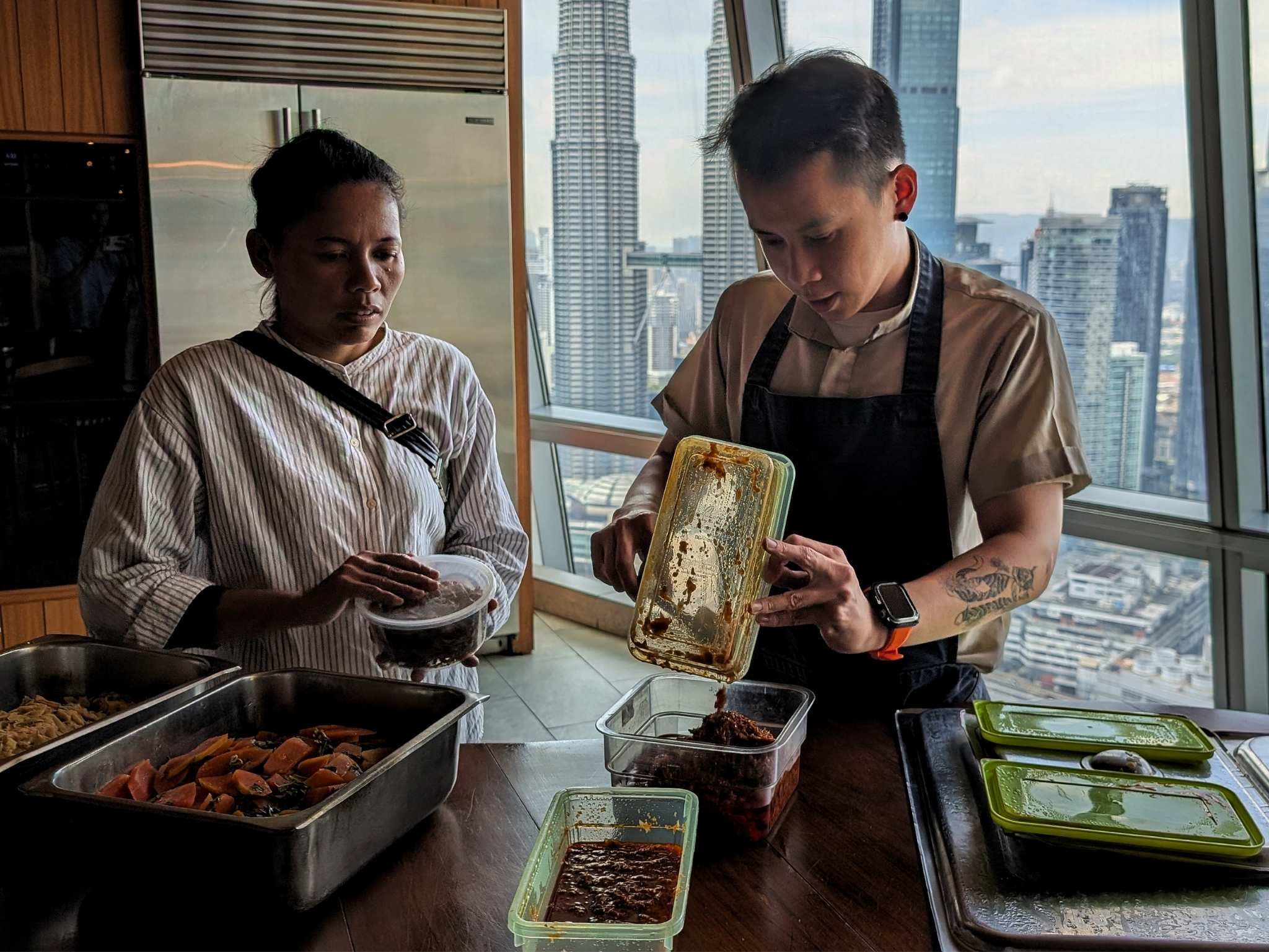
Many of the preparations were traditional, introducing the team to techniques and flavors they hadn’t experienced before. The meal featured rebung, or bamboo shoots, alongside a stewed chicken dish cooked with buah getah, rubber fruit seeds that, Salmiah explains, must be smoked for up to two weeks before they can be used. Here, they were added to give the stew a naturally creamy texture, along with daun semomok, a leaf commonly known as stinkbug leaf for the smell it releases when crushed, but which tastes faintly of onions once cooked.
The meal builds on Dewakan’s longstanding relationships with Orang Asli producers and foragers, and for the team, provided opportunities to ask questions and engage more deeply with the ingredients and knowledge that have long informed the restaurant’s work. This was the first time they had done Mondays this way, and while the team is unsure how the idea might take shape in the future, the pilot offered a new perspective on the possibilities for staff meals at Dewakan.
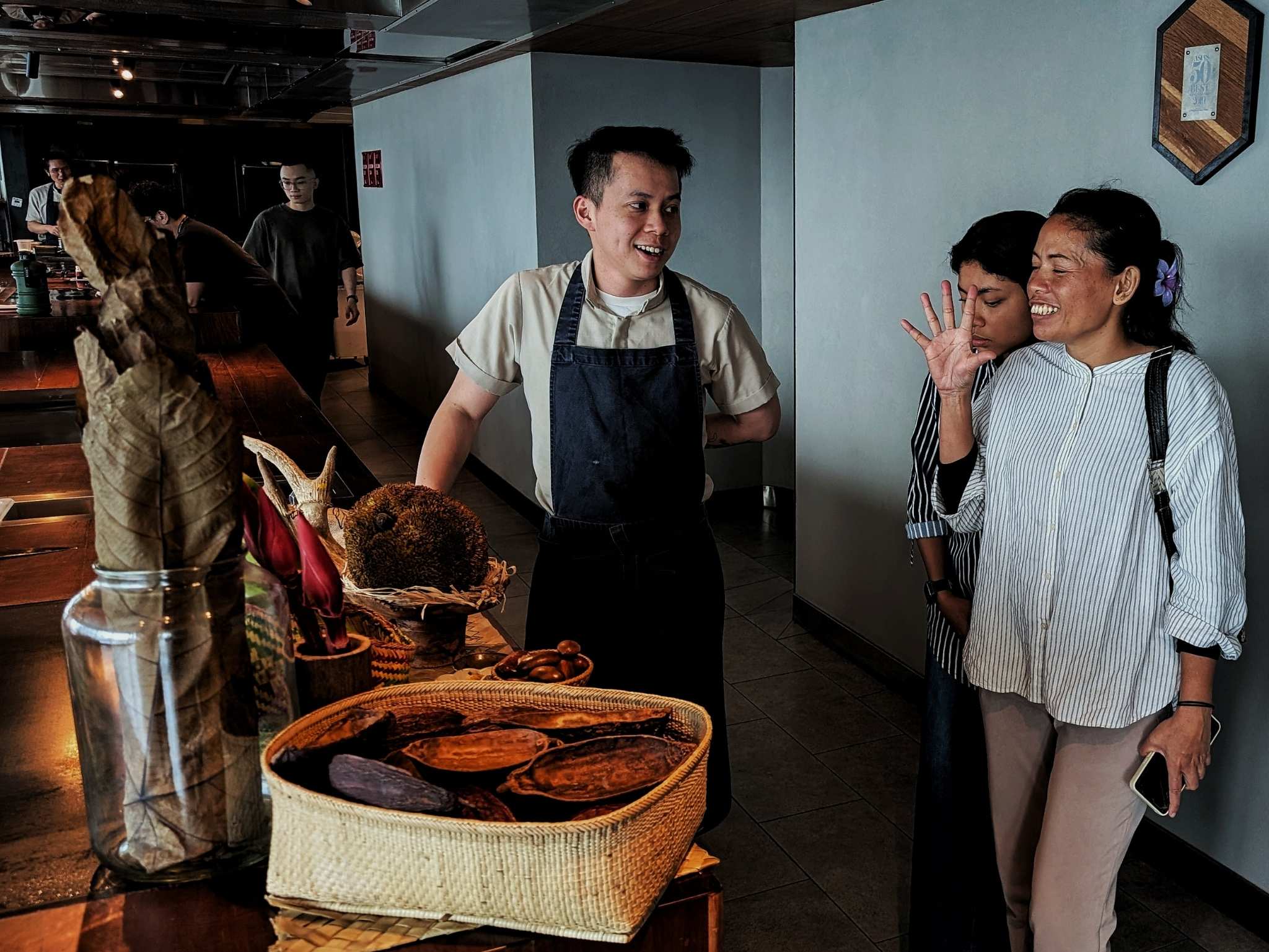
Staff meal, or “family” meal, as it is also called, can be defined purely by its express purpose of providing sustenance. Go one layer deeper, and it becomes a tool for cultivating camaraderie, building bonds within a brigade, the reason it earned the name in the first place. But here, it is all of the above, and also an extension of Dewakan’s ethos: to hold the same care and intention in everything they do, from the meals that feed their guests to the meals that feed their team. It echoes the sentiment expressed by none other than Thomas Keller in his seminal The French Laundry Cookbook in 1999, where he dedicated a section to staff meals.
"Staff meal. Only the staff sees it. If you can make great food for these people, create that habit, have that drive, that sincerity, and keep that with you and take it to another level in the staff meal, then someday you’ll be a great chef. Maybe."







